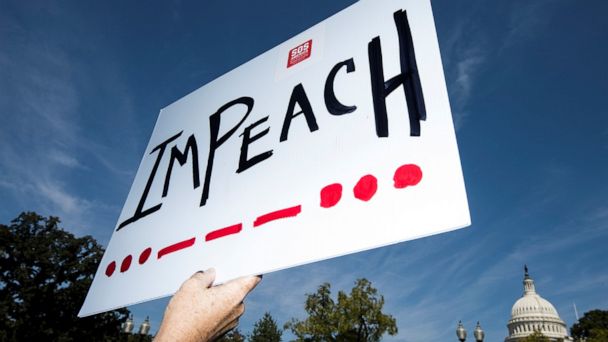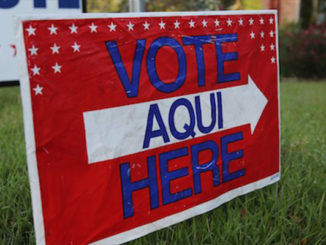
by William A. Galston
Public opinion may not determine the outcome of political controversies, but it affects the way elected officials react to events, especially high-profile issues such as impeaching and removing a president from office. Here are five big things we have learned from surveys about the impact of the information the American people have received during the past two weeks concerning President Trump’s famous telephone call with Ukrainian President Volodymyr Zelensky and the conduct of other senior officials.
One: Because President Trump has been such an unusual and polarizing figure, a substantial share of the public has favored removing him from office throughout his presidency. According to Nate Silver, in all polls from the start of 2017 until just before the news about Ukraine broke, support for impeachment averaged 38.5%, with 55.7% opposed. And there was no sign that the public was moving toward impeachment. In fact, the release of special counsel Robert Mueller’s report was followed by a modest decrease in public support. This evidence points to two conclusions: post-Ukraine support for impeachment should be measured against a high pre-existing baseline, and it is reasonable to attribute changes since then to new information rather than pre-existing trends.
Two: The release of new information has had a measurable but not decisive impact on public support for impeaching and removing the president from office. The six surveys of registered voters conducted since September 23 find that an average of about 47% now support impeaching Mr. Trump while 44% oppose it[i]. Among eight surveys of all adults [ii], regardless of their registration status, the results are similar, with 44% supporting and 40% opposing impeachment. Overall, new information seems to have increased public support for impeachment by about 7 percentage points while decreasing opposition by nearly twice as much. (In the few surveys that give respondents an explicit “too early to tell” option, a substantial share moves into the undecided column.) But despite these shifts, impeachment enjoys less than majority support, and the margin between supporters and opponents is narrow.
Three: Responses to post-September 23 developments divide sharply along partisan and ideological lines. Pro-impeachment sentiment grew much more among Democrats and Independents than Republicans, and the differences between these groups are dramatic. Across the surveys that report partisan breakdowns, support for impeachment now averages 78% among Democrats and 38% among Independents compared to only 13% among Republicans. Among the majority of Republican elected officials who represent deep red districts or states, the political calculus still points toward sticking with President Trump.
Four: Even though surveys taken in early October suggest that growth in support for impeachment based on the initial revelations is slowing, there appears to be room for further growth as the public receives and processes additional information. An Economist/YouGov poll showed that while only 11% of Republicans currently favor impeachment, 24% think it is inappropriate for a president to request a foreign government to investigate one of his potential political rivals, a figure that rises to 44% when the issue is threatening to withhold foreign aid if the foreign county refuses to take an action that personally benefits to president. Forty-five percent of Republicans and 61% of Independents believe that an elected official who abuses the power of his or her office should be impeached and removed; 42% of Republicans and 58% of Independents take this position if the violation is obstruction of justice. Some Republicans and Independents who currently oppose impeachment could change their minds if the evidence convinces them that Mr. Trump’s conduct meets one or more of these tests.
Finally: At this point, few Americans believe that President Trump will be removed from office by a Senate vote on article of impeachment, and many wonder whether it is worth the effort. A USA Today/Ipsos poll found that only 15% of the respondents—and just 9% of Independents—believe that he will be removed in this manner. Even Democrats are not very confident: just 25% think that the impeachment process will lead to a successful outcome. An NPR/PBS NewsHour/Marist poll found that 49% of Americans, and 52% of Independents, don’t think it’s worth it for House Democrats to vote to impeach Mr. Trump if the Senate Republicans will not vote to convict him.
In short, although the past two weeks have shifted the political terrain on which the combatants stand, the Democrats continue to face high odds against succeeding, and there is no guarantee that a failed effort to remove the president from office will serve their electoral interests in the coming election.
William A. Galston holds the Ezra K. Zilkha Chair in the Brookings Institution’s Governance Studies Program, where he serves as a Senior Fellow.
[i] Reuters/Ipsos 9/23-24, Reuters Ipsos 9/26-30, HuffPost 9/24-26, HuffPost 9/30-10/1, Quinnipiac 9/27-29, Economist/YouGov 9/28-10/1
[ii] Reuters/Ipsos 9/23-24, Reuters/Ipsos 9/26-30, USA Today/Ipsos 10 /1-2, HuffPost 9/24-26, HuffPost 9/30-10/1, CNN/SSRS 9/24-29, CBS News/YouGov 9/26-28, Economist/YouGov 9/28-10/1



